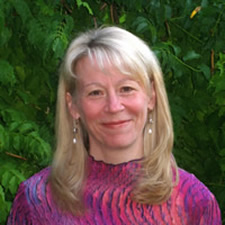 EUGENE, Ore. -- (Sept. 23, 2009) -- Women working in science, engineering and technology fields often face unique challenges as they seek career satisfaction and advancement. Because these fields have been dominated by men, fewer resources and tools exist to help women advance.
EUGENE, Ore. -- (Sept. 23, 2009) -- Women working in science, engineering and technology fields often face unique challenges as they seek career satisfaction and advancement. Because these fields have been dominated by men, fewer resources and tools exist to help women advance.
Geri Richmond, a University of Oregon chemistry professor, has served as an advocate for women in science. She will present "Breaking through the Plexiglass Ceiling" – a free networking and career building event for women in technically oriented fields – 5:30 p.m. on Thursday, Oct. 1. The event is at UO Portland's White Stag Block, 70 NW Couch St.
"Because women are less likely to pursue an education or career in many technical fields, and once they do, they often face obstacles because of their gender," said Richmond. "The support system to assist women in career advancement is often absent, leaving them at a significant disadvantage relative to many of their male colleagues."
Richmond is widely recognized for her pioneering and ongoing research in the application of laser methods to understand environmentally important surfaces processes. She is the co-founder and chair of Committee on the Advancement of Women Chemists (COACh), an organization that develops and provides professional development programs across the country for women in technical fields. She has been honored for her efforts to promote women in science by the Presidential Award for Excellence in Science and Engineering Mentoring (1997), the American Chemical Society Award for Encouraging Women in the Chemical Sciences (2005) and the Council on Chemical Research Diversity Award (2006).
Registration is required. To register, visit uoregon.edu/~wits/wits/events/ or call 541-346-0116.
Other programs in the "Science Savvy Women and Girls" series:
"CSI Girls: Crime Sleuthing for Curious Kids"
Thursday, Oct. 15; 4-7 p.m.
Be a detective, a mystery solver and a science sleuther. This event provides a chance for elementary school girls and their mothers (or other sponsor) to be a crime solving team. Collect data, gather fingerprints and use the crime lab stations to figure out "who done it." Come anytime between 4-7 p.m. and work at your own pace. All necessary materials and crime-solving assistance will be provided by the Women in Graduate Sciences from the University of Oregon. Geek prizes given to the first 20 mother-daughter teams to sign-up and participate. RSVP required.
"Science Savvy Teenage Girls: Career Tips and Tactics for Technically Talented Teens"
Thursday, Oct. 22; 5:30 p.m. reception, 6-8 p.m. presentation
This evening for teenage girls, their parents and teachers will be devoted to a discussion of career options and exciting emerging opportunities for teens interested in using their talents to build careers in technically oriented fields. A panel of women scientists and engineers will lead the discussion and answer any questions including how to best prepare in high school for a technical career, things to consider when looking at colleges, and how to find colleges and universities that are particularly successful in supporting and promoting their female students. RSVP required.
"Science Savvy: A Journey from Neuroscience to HIV/AIDS in Africa"
Thursday, Oct. 29; 5:30 p.m. reception; 6 p.m. program
Often careers lead us in unexpected pathways. This lecture follows a personal journey of Janis Weeks from a focus on teaching and research with students in the field of neuroscience at the University of Oregon, to working in rural health care facilities in Zimbabwe, a country with one of the highest HIV prevalence rates in Africa. Weeks will share her experiences from basic research in neuroscience to global health issues, and her belief that even in such isolated and resource-poor settings, antiretroviral treatment and related services provide hope for the future. The lecture will also touch on how professional careers in science need not be static, but rather can grow and change throughout one's life. RSVP required.
###